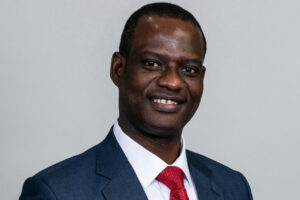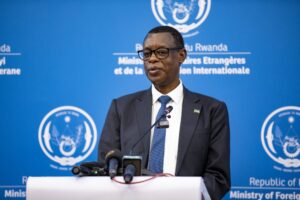
Nairobi — Deputy President Kithure Kindiki has asserted that the government will not relent in its sweeping reforms to deliver accessible, relevant, and quality education for all learners, stating that Kenya has come too far to reverse the gains achieved over the past two decades.
In a statement , the Deputy President outlined milestones achieved in just two years, saying they have cemented the foundation for a transformed education system that meets the needs of the 21st-century learner.
“Kenya has come too far.The incredible gains of the last 22 years’ transformation of the education system are irreversible,”Kindiki stated.
He noted the government most significant achievements in addressing the longstanding challenges in the Competency-Based Curriculum (CBC), which has evolved into a broader framework under Competency-Based Education and Training (CBET).
“The problematic aspects of the Competency-Based Curriculum are now satisfactorily resolved,” he said.
The conceptualization of CBC has now been broadened into CBET, with a seamless transition to senior school expected in January 2026.”
Kindiki outlined the infrastructure rollout, with 23,000 new classrooms constructed 16,000 by the Ministry of Education and 7,000 through the National Government Constituencies Development Fund (NG-CDF).
He added that construction of 1,600 science laboratories is set to begin, targeting underserved areas and schools offering the Science, Technology, Engineering and Mathematics (STEM) pathway.
The Deputy President emphasized the commitment by the Kenya Kwanza regime in improving the quality of education through hiring of additional teachers from the annual average of 5,000 new teachers before 2022.
He added that a further 24,000 teachers will be hired in December, raising the total number recruited in three years to 100,000.
“Seventy-six thousand primary and secondary school teachers have been employed to actualize the constitutional right to basic education,” he said
“That is almost a third of all the teachers employed between 1963 and 2022,” Kindiki added.
Kindiki outlined a far-reaching government agenda aimed at transforming higher education in Kenya, saying deliberate investments in universities and technical institutions are reshaping access, affordability, and relevance across the sector.
The increase in enrollment in Technical and Vocational Education and Training (TVET) institutions, which he said has doubled over the past two years from 297,000 students in 2022 to 700,000 in 2025 has signaled the transformation.
Sign up for free AllAfrica Newsletters
Get the latest in African news delivered straight to your inbox
Success!
Almost finished…
We need to confirm your email address.
To complete the process, please follow the instructions in the email we just sent you.
Error!
There was a problem processing your submission. Please try again later.
Under the Dual Training Policy, all TVET learners are now required to undergo practical industry training before graduation. The hands-on approach is espoused to ensures that graduates leave institutions with not just theoretical knowledge, but real workplace experience that enhances employability.
The Recognition of Prior Learning initiative is certifying individuals with skills gained through informal or on-the-job experience many of whom had previously been excluded from formal certification due to lack of academic credentials.
“The RPL system is a game-changer.Kt recognises talent and experience, especially among artisans, technicians, and self-taught professionals who have long contributed to the economy but lacked certification,”Kindiki stated.
Kindiki highlighted the new Universities Funding Model, which is being refined to ensure no qualified student misses university education due to financial constraints, and preventing institutional collapse from financial mismanagement or underfunding.
“The new Universities Funding Model has been introduced, and is being fine-tuned to ensure no qualified student misses university education for lack of fees, and to stem the threat of insolvency that has been facing a number of our universities,” he said.




